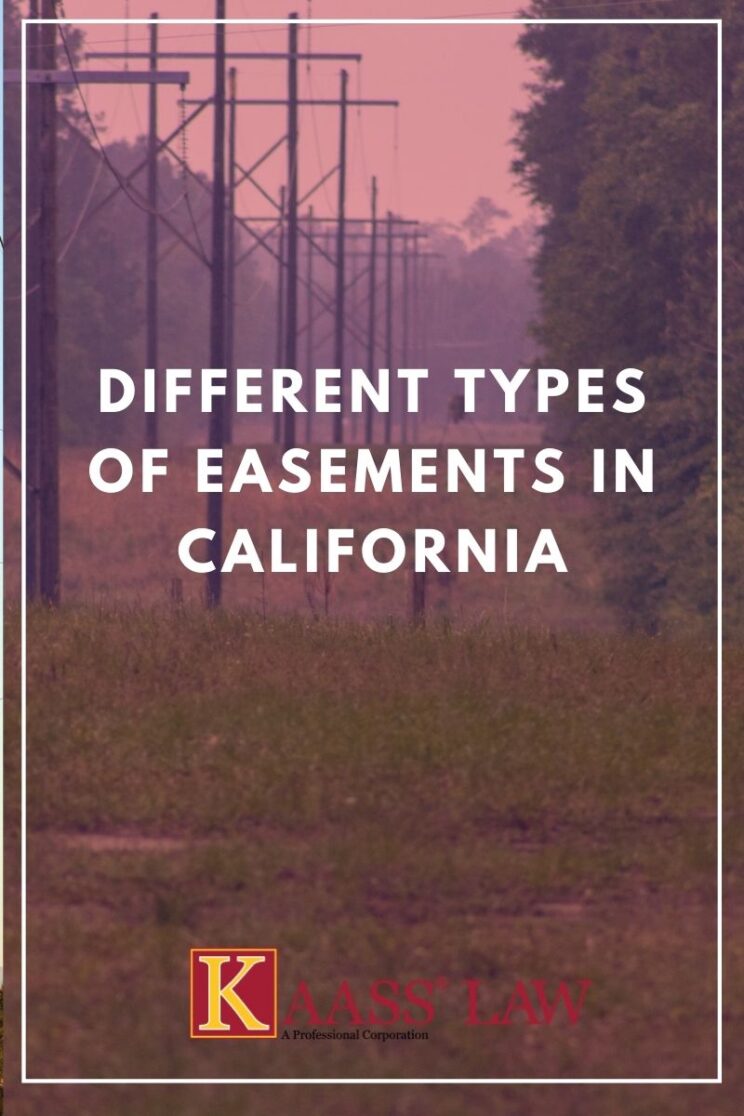An easement is defined as a right for a person or an entity to use a part of real estate that they don’t actually own for a specific purpose.
Types of Easement in California
There are four types of easements that can be applicable to your property, including:
- Express easements
- Implied easement by existing use
- Easement by necessity
- Prescriptive easements.
Express Easement
Express easement is created either through a reservation or a grant. In case of a granted easement, the landowner provides a person or the entity with the ability to use the land for right of way purposes. In the case of a reserved easement, the land is sold from one person to another, but the original owner reserves an easement for his benefit.
Implied Easement by Existing Use
Implied easements exists where an area of land is divided into two parts and one part was used for the benefit of the second one before the land was divided. An implied easement doesn’t need to be in writing, unlike express easements.
Easement by Necessity
Easement by necessity occurs when use of the land is unconditionally necessary. Easement by necessity doesn’t require preexisting use of the land. In case someone’s property is blocked in, he may need to use a portion of another person’s property to reach the street.
Prescriptive Easement
A prescriptive easement can be granted when one person continued to use a portion of another person’s land for a specific period of time. A prescriptive easement may still be granted, even if the owner didn’t give his permission to use his land
Scope of the Easement
Scope of the easement refers to how the easement can be used which is determined by the type of easement.
- The scope of express easements are limited to the terms of the easement
- The scope of an implied easement is determined by existing use is limited to how the land was used before that easement existed.
- An easement by necessity is limited in scope by the degree of necessity.
- The scope of a prescriptive easement is typically limited by the term how the land was initially used.
Real Estate Attorney
For more information regarding easements, land use, property rights, and or development laws, we invite you to contact our real estate attorney today at (310) 943-1171.

